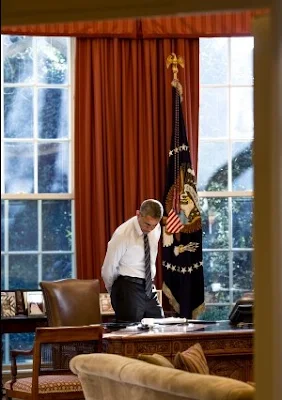Continuing discussion of Dark Ages Ahead (2004)by Jane Jacobs. First part is here.
In warning of the dangers of a Dark Age ahead, Jane Jacobs singles out "five pillars of our culture that we depend upon to stand firm, and discuss what seem to me ominous signs of decay."
Her five pillars are community and family, higher education, "the effective practice of science and science-based technology," taxes and government, and "self-policing by the learned professions."
She immediately recognizes that these are not the most obvious, which would include "racism, profligate environmental destruction, crime, voter distrust of politicians and thus low turnouts for elections, and the enlarging gap between rich and poor along with attrition of the middle class."
She feels these second five have been recognized, and also sees them as results of the first five. Elsewhere she notes that while her choice of five may not be the biggest threats leading to a Dark Age, they are the stabilizing pillars of the culture that we depend on to make corrections in our cultural course---so if we're on the way to catastrophe, these in a healthy state would help us change direction.
But if they are weak, we are less able to change culturally to confront such challenges as racism and environmental degradation, and so we're left helplessly watching ourselves head into the Dark Age, knowing what the problems are, but unable to address them.
At the end of the book, Jacobs makes practical suggestions to reverse some of the deterioration in these five pillars. In interviews about this book she insisted she is basically an optimist, and that despite the title, this is an optimistic book.
First pillar (chapter 2)
Families Rigged to Fail
Jacobs makes a distinction between the
family as a biological unit (whether nuclear or extended family) and the
household, which is an economic unit. A household can include renters and boarders, or be non-families altogether--from monasteries to armies.
She discusses some of the threats to the nuclear family that are well known, but one of her particular virtues is how she uses statistics. She finds averages nearly useless, as the so-called divorce rate at 50%, which is made up of averaging very long marriages with very short ones. But she acknowledges that there are higher proportions of divorce across all income classes, and postponements of marriage and having children, which contribute to lower birth rates.
But her major emphasis is economic. For 40 years starting in the 1930s, the median income (meaning half made more, half made less) of a family was sufficient to buy a median-priced home or rent a median-priced apartment. That changed in the 1970s, and by the 1980s, 90% of America families could not afford a median-priced house. Rents also took up larger proportion of income.
This led to an epidemic of homelessness, and a middle class dependent on low inflation and the paper wealth of mortgages on their homes. Families depended on at least two incomes to support a household, but it was a losing fight, for expenses increased--especially the need for a automobile or two.
In addition: "Two parents, to say nothing of one, cannot possibly satisfy the needs of a family-household. A community is needed as well, for raising children, and also to keep adults reasonably sane and cheerful."
Here we're on traditional Jane Jacobs ground, as she describes all the resources a family needs, including those usually provided through government (roads, parks, public health, schools, libraries, emergency services) as well as non-profits and commercial establishments.
Then there are "thoroughly informal, thoroughly intangible, and probably the most important [resources]: speaking relationships among neighbors and acquaintances in addition to friends."
She describes why these are important, and how they function. But these relationships are less likely in car-dominated suburbia, which also tends not to have a diversity of residents. She notes how highways obliterated city neighborhoods and how, without mentioning her own substantial role, that kind of city planning was defeated in New York, saving the now fashionable neighborhood of SoHo.
She also describes in some detail how the triumph of the automobile was hardly market-based, it was the work of General Motors in stripping American cities of public transportation, especially the more efficient trolley systems. (I did a detailed article on trolleys and light rail including the history, and while Jacobs' stats are damning, the history is a little more complicated.)
Some people would find this nostalgia or a quaint memory, but she insists on trolleys as "quieter, faster, more comfortable and more durable and economic" as well as less likely to destroy neighborhoods, and reminds us that when China capriciously jettisoned its ships, people soon forgot them.
Other factors could be added to those Jacobs outlines to contribute to loss of community, but an important concept here is that it is indeed a loss, and not a theoretical one. For her, the mark of the Dark Ages is a societal forgetting--so that the memory of what was lost is also lost. That includes specific knowledge (how to do things, how to fix things as well as facts and theories) and it includes what once had physical form, like communities and their landmarks.
Now with more migration and immigration, flexible and strong communities are needed more than ever. She notes that these observations are fairly obvious, and that she will return to the problem of communities again. But she warned:
"If the predicaments of North American families continue mounting and climb further up the income ladder, I have no idea what kinds of households will emerge to deal with needs that families are at a loss to fill. My intuition tells me they will probably be coercive. This is already true of the most swiftly multiplying and rapidly expanding type of American households at the turn of the millennium--prisons."


















